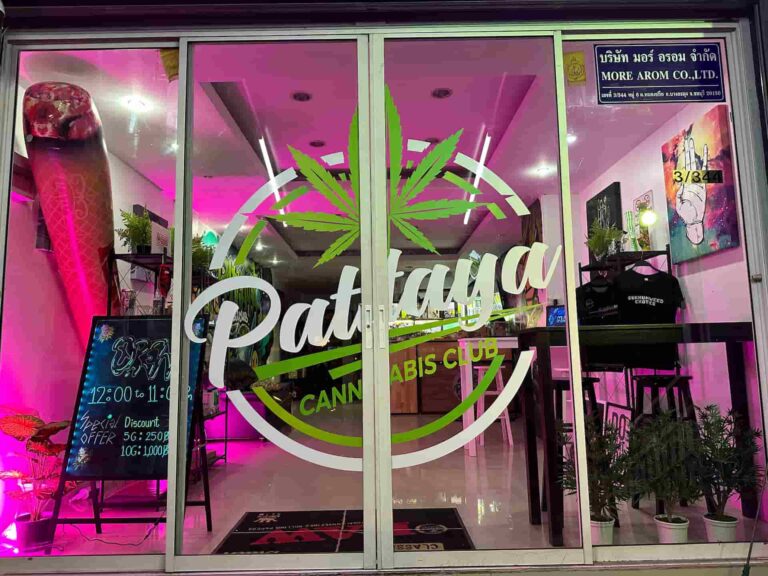Where Gambling in Thailand Stands Today
Gambling in Thailand has deep cultural roots, with traditional practices dating back centuries. Various forms of gambling have existed in the region, often intertwined with local customs, beliefs, and community activities. Despite the historical significance of gambling in Thai society, its legal status has been a subject of considerable debate. Currently, most forms of gambling are illegal in Thailand, with the notable exceptions of the state-run lottery and horse racing, both of which contribute to government revenues and online options such as BC.Game.
The traditional local lottery, known as the “Government Lottery,” offers a regulated and legal avenue for gambling enthusiasts. Residents are allowed to participate in this lottery, and it often reflects broader social norms and community engagement. However, illegal gambling operations, ranging from underground poker games to unlicensed betting on sports, continue to thrive, demonstrating the persistent demand for gambling activities in Thailand among the population. This illegal landscape has given rise to concerns about crime and corruption, as well as challenges for law enforcement.
Societal attitudes towards gambling in Thailand are complex. While some people view it as a harmless pastime, others regard it as a vice that can lead to severe social issues, including addiction and financial ruin. The government’s stance has generally leaned towards prohibition, citing the need to protect citizens from the possible adverse effects of gambling. However, there has been a growing discourse advocating for the legalization of casinos and regulated gambling establishments to better control the industry and harness potential tax revenues. This evolving perspective highlights a tension between the cultural heritage of gambling and contemporary legal and moral challenges, as Thailand grapples with its gambling identity amidst calls for reform.
Current Status of Casinos in Thailand
The landscape of gambling in Thailand remains intricate, as the legal framework is primarily characterized by prohibition and strict regulation. Currently, casinos are illegal in Thailand, which has led to a unique scenario where the gambling scene exists predominantly in an underground format. Despite the ban on casinos outside of government-sanctioned areas, a underground gambling market has developed, including illegal poker and blackjack venues that cater to local demand. These operations not only pose a challenge to law enforcement but also have significant societal implications.
The only forms of gambling permitted by Thai law are the national lottery, bets on horse racing and online, which are directly regulated by the government. This situation has fueled the desire for a more structured legal environment, where a casino in Thailand could operate under regulatory oversight, potentially providing economic benefits. However, the government’s reluctance to legalize retail casinos stems from concerns over social issues and the potential for increased crime rates associated with expanded gambling opportunities.
The economic implications of maintaining such stringent regulations on casinos in Thailand are quite profound. By prohibiting formal gambling establishments, the government is missing out on potential revenue streams from tourism in Thailand and job creation. Neighboring countries with legal gambling industries have capitalized on the demand for entertainment options like blackjack and poker, drawing Thai citizens across borders to partake in such activities. As a result, increasing discussions surrounding the legalization of Thai casinos have emerged, calling for a balanced approach that maximizes economic growth while addressing the potential social ramifications of expanded gambling options.
Public Opinion on Legalizing Casinos
The debate surrounding the legalization of casinos in Thailand has become increasingly pronounced, revealing a divided public sentiment. Recent surveys conducted by various research organizations indicate that approximately 60% of respondents favor the establishment of regulated Thai casinos, primarily citing potential economic benefits and increased tourism. Advocates argue that legalizing a casino in Thailand could stimulate local economies, create jobs, and generate significant tax revenues. This financial influx could be instrumental in bolstering infrastructure and public services, especially in regions that depend heavily on tourism.
Opponents, however, express strong concerns regarding the societal implications of casinos, emphasizing the potential rise of gambling addiction and social issues against Thai law. Many believe that the introduction of gambling platforms, such as poker Thailand or blackjack Thailand, could contribute to worsening social conditions, particularly among vulnerable populations. Surveys indicate that this is a significant factor influencing the opinions of the Thai public. The fear of potential negative ramifications associated with casinos often overshadows the anticipated economic gains.
Thailand for Substantial Monetary Benefits
Expert opinions further complicate the conversation. Economists point out that while the legalization of gambling in Thailand could lead to substantial monetary benefits, it is crucial to implement robust regulatory frameworks to mitigate risks. They argue that successful models from other countries demonstrate that with proper oversight, economic prosperity and social responsibility can coexist. Understanding these nuanced perspectives has become critical as policymakers weigh the pros and cons of establishing casinos within the nation.
As discussions continue, public opinion will remain a crucial driver in shaping future policies regarding gambling in Thailand. Whether the balance tips in favor of economic benefits or societal concerns could ultimately dictate the trajectory of casino legalization in the coming years.
Economic Impact of Future Casino Developments
The prospect of legalizing casinos in Thailand presents significant potential for economic advancement within the country. By creating licit gaming environments, we can anticipate the generation of numerous job opportunities. Employment within Thai casinos not only encompasses the direct staffing of the properties—ranging from dealers in blackjack and poker tournaments to hospitality roles—but also indirectly supports various sectors including construction, maintenance, and marketing. The influx of job creations can invigorate local economies, supporting families and expanding the workforce.
Another pivotal benefit of introducing a legal casino industry would be the enhancement of tourism. Countries that have embraced gambling, such as Singapore and Macau, have witnessed substantial upticks in visitor numbers following the establishment of casinos. As tourists are drawn to the burgeoning entertainment options, this can stimulate broader tourism-related industries, including hotels in Thailand, restaurants, and retail venues. The formulation of comprehensive strategies around casino in Thailand could make it a competitive player within the Southeast Asian tourism market.
Revenue generation through taxation is another crucial aspect. Taxation from casinos has the potential to provide a significant financial influx to the Thai government. These funds can be allocated to public services such as healthcare, education, and infrastructure, vital for national growth. By analyzing case studies from other nations that legalized gambling, such as the economic revival experienced in Las Vegas following its casino legalization, Thailand could structure its gaming regulations to enhance revenue while controlling potential social risks associated with gambling within the same way the country did with the legalization of cannabis. While there are challenges in this field, as seen in some jurisdictions, a well-implemented model can lead to sustainable economic growth and responsible gambling practices within Thailand.
Potential Locations for New Casinos
The development of new casinos in Thailand is an area of significant interest, with multiple locations being evaluated for their potential to host thriving gambling establishments. Tourist hotspots such as Pattaya, Phuket, and Bangkok are prime candidates, given their well-established infrastructures and high visitor footfall. These cities not only attract international tourists but also are popular among local residents who partake in various forms of entertainment, including gambling.
In particular, Pattaya has become known for its Pattaya nightlife and entertainment options, making it an ideal location for a new casino. The presence of existing Pattaya hotels, accommodations and restaurants further supports its viability, as visitors often seek diverse forms of entertainment within close proximity to their lodging. Similarly, Phuket, with its allure of pristine beaches and luxurious resorts, could seamlessly integrate a casino into its entertainment offerings, positioning itself as a complete holiday destination for international visitors, including those interested in gambling in Thailand.
Bangkok at Top of The List
Bangkok, being the capital city, presents an even more compelling option. The city’s robust transportation network, cultural attractions, and global business hub status make it an attractive site for investors looking to tap into the casino industry. However, the bureaucratic and regulatory landscape poses significant challenges. Establishing a casino in Thailand is not only a matter of finding a suitable location; there are numerous legal hurdles that must be navigated, including obtaining necessary licenses and addressing concerns related to gambling laws.
Moreover, regions that are slightly off the typical tourist path, such as the eastern economic corridor, could also be explored for potential casino development. Such areas may benefit from an influx of both tourists and local gamblers, reinforcing the local economy. On the whole, while the future prospect of casinos in Thailand is promising, it hinges on a careful balancing act of location selection, logistical planning, and navigating regulatory frameworks.
Government Plans and Legal Framework
The landscape of gambling in Thailand has been characterized by a complex legal framework, with significant debates surrounding the possibility of legalizing casino operations. In recent years, the Thai government has shown increasing interest in establishing a regulated casino industry as a means to enhance tourism and generate revenue. Officials have made various statements indicating that there are considerations for introducing legislation that could pave the way for Thai casinos. This shift in attitude underscores a potential transformation in the national approach to gambling in Thailand.
In light of these discussions, key government figures have proposed a structured plan for the legalization of casinos. The proposed legislation would focus on establishing clear regulations for casino operations, delineating operator responsibilities, ensuring oversight on gaming activities in Bangkok, and implementing strict measures to prevent illegal gambling practices. The government aims to create a responsible gambling environment that prioritizes player safety while maximizing state revenue through regulated gaming establishments.
Legislative Proposals May be Presented in 2025
Recently, several drafts of related laws have been circulating among lawmakers, with timelines for potential casino development being discussed. According to reports, initial legislative proposals may be presented in parliamentary sessions in the coming year, with hopes of a structured timeline for the development of casinos in select tourist areas. The government is advocating for a well-regulated approach to ensure that establishments like blackjack Thailand and poker Thailand cater both to local residents and tourists who seek entertainment through gambling.
Moreover, if legalized, the government intends to implement an extensive regulatory framework, including licensing procedures for operators, as well as measures to monitor and control gambling practices. This framework will likely involve cooperation with various state departments, ensuring that the new casino industry aligns with the nation’s economic and social goals. As discussions advance, the future of casinos in Thailand appears to hinge on the government’s commitment to establishing a sustainable and regulated gambling environment.
Impact on Local Communities
The emergence of casinos in Thailand carries significant implications for local communities, presenting both potential economic benefits and social challenges. On one hand, the introduction of legal Thai casinos could stimulate economic growth through job creation and increased tourism. The influx of visitors to a casino in Thailand may lead to heightened demand for local businesses, thus promoting entrepreneurship and community development. Local services, such as infrastructure, healthcare, and education, often receive a boost from the revenue generated by these establishments, fostering overall prosperity in the region.
However, the positive outlook must be weighed with the potential drawbacks that gambling in Thailand may instigate. Increased access to casinos can contribute to gambling addiction, a serious concern that impacts not only individuals but also their families and the broader community. Community leaders have voiced concerns about the potential rise in financial instability caused by compulsive gambling behaviors, leading to increased debt and mental health issues. Furthermore, as the nightlife associated with casinos expands, there can be a detrimental shift in the social fabric, potentially resulting in an uptick in crime or disorderly conduct, challenging the quality of life for residents.
Various social organizations have begun to advocate for responsible gambling practices and stronger support systems for those who fall prey to addiction. Insightful studies and community discussions underscore the necessity for a balanced approach. It is imperative that local governments engage with stakeholders to ensure that the development of casinos not only prioritizes economic impact but also addresses the well-being of its citizens. A comprehensive strategy must recognize the nuanced effects of these gambling establishments, ensuring that the benefits of casinos do not come at the expense of community integrity and harmony.
International Perspectives on Gambling
The landscape of gambling is diverse across various nations, particularly in Southeast Asia, where regulations and cultural attitudes significantly influence the industry. Countries like Singapore and Malaysia have developed successful models for gambling regulation that Thailand could consider as it evaluates its approach towards establishing a regulated casino framework. In Singapore, the introduction of integrated resorts has not only boosted tourism but also provided a structured environment for gambling activities. The government-enforced strict regulations and responsible gambling measures to mitigate the social impacts of gambling. Such strategies highlight the importance of creating a balanced approach where tourism and social responsibility coexist, serving as a noteworthy example for the potential development of casinos activities in Thailand.
Moreover, the case of Malaysia presents another perspective, where the only legal casino is strategically situated in the Genting Highlands. The government has strategically limited access to gambling facilities, thereby controlling possible addiction and ensuring that gambling remains a recreational activity rather than a societal issue. This regulatory focus has allowed the country to reap financial benefits from tourism while providing a framework that could be adapted for Thai casinos. By learning from these examples, Thailand has the opportunity to structure its gambling laws to not only enhance revenue but also protect citizens from the possible adverse effects associated with gambling.
Furthermore, fostering international partnerships could be beneficial as Thailand enhances its gambling industry. Collaborating with nations that have established successful casino operations could lead to knowledge exchange, helping Thailand craft regulations that prioritize customer protection and ethical gambling practices. As the country explores potential frameworks for its casino industry, understanding the various international perspectives on gambling will be vital. The Thai government must carefully analyze successful models and consider regional partnerships as they embark on this journey towards legalizing and regulating gambling in Thailand.
Conclusion: The Future of Gambling in Thailand
The landscape of gambling in Thailand has been shaped by a complex interplay of cultural, political, and economic factors. As we have explored, the ongoing debates surrounding the legalization of a Thailand casino continue to capture the attention of policymakers and citizens alike. Advocates for a regulated gambling environment argue that establishing a casino in Thailand could serve as a significant boost to the economy, generating revenue through tourism and taxation. This perspective highlights the potential for social progress and economic growth in a sector that has remained largely underground.
Opponents, however, cite concerns regarding the social implications of legalized gambling, such as the potential for increased addiction rates and the moral arguments against such practices in a primarily Buddhist society. These concerns illustrate the conflict between traditional values and modern economic initiatives. Despite these challenges, there is a growing recognition of the need for regulatory frameworks that can mitigate risks while allowing the Thai casinos to thrive within a controlled environment.
Gambling in Thailand Remains Uncertain
As developments continue to unfold, the future of gambling in Thailand remains uncertain. The increasing interest in poker in Thailand and blackjack in Thailand indicates a rising appetite for casino-style entertainment, especially among younger populations. If the government decides to move forward with legalization, it could lead to the establishment of a robust gaming industry that aligns with global trends. Such changes could also foster responsible gambling practices, which would address some of the societal issues currently associated with gambling in Thailand.
Ultimately, the progression towards a regulated gambling market necessitates ongoing discussions and community engagement. Readers are encouraged to reflect on their perspectives regarding the future of gambling in Thailand, especially considering the potential benefits and drawbacks. Should Thailand embrace legal casinos, or should it maintain its current prohibitive stance? The conversation must continue as we navigate the complexities of this evolving landscape.







